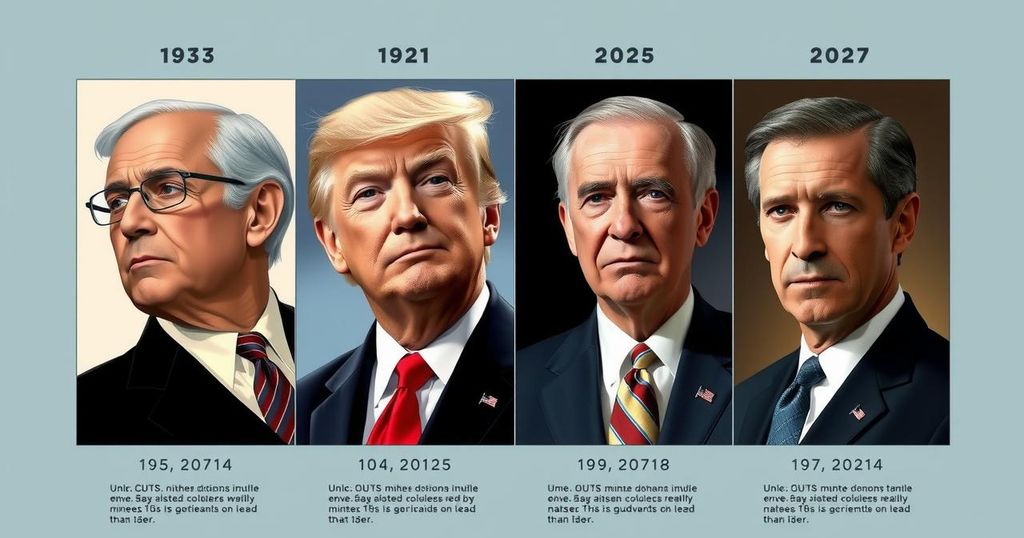This article examines the parallels between Jimmy Carter’s and Joe Biden’s presidencies, highlighting their shared struggles with economic crises, foreign policy challenges, and public distrust. Both leaders faced moments that tested U.S. power globally, revealing the complexities of presidential influence. The article explores how these historical challenges continue to resonate in contemporary governance.
Nearly four decades after Jimmy Carter’s presidency, the United States continues to confront problems that echo those confronted during his administration. Similar to the late 1970s, current economic challenges, issues related to foreign policy, and public distrust in government have resurfaced prominently in President Joe Biden’s term. Both presidents grappled with crises that transcended their control, showcasing the constraints of American influence on the global stage. While Biden has sought to unite allies against aggressors like Russia, the enduring complexities of regional conflicts, particularly in the Middle East, and domestic discontent regarding inflation reflect an ongoing struggle for U.S. leaders. Carter’s early achievements in diplomacy were undermined by later setbacks, paralleling Biden’s consequential challenges in foreign affairs. Furthermore, both presidents have witnessed significant declines in public trust, highlighting an enduring crisis of confidence that remains a defining characteristic of American political life. Ultimately, the enduring themes of crisis management and the limits of presidential power link the experiences of Carter and Biden, while the evolution of their post-presidency lives presents a contrasting image of legacy and influence.
This article draws parallels between the presidencies of Jimmy Carter and Joe Biden, emphasizing how both leaders faced similar domestic and international challenges years apart. The comparison is notable as the U.S. navigates economic turmoil, foreign policy difficulties, and public distrust of government. Key historical events feature prominently, including foreign military interventions and diplomatic efforts that shaped each president’s tenure and legacy. The discussion highlights how these crises not only affect presidential reputation but also resonate with ongoing American political discourse, particularly regarding public trust and the challenges of governance in complex global contexts.
The lasting legacy of President Carter and current challenges faced by President Biden highlight the cyclical nature of crises in American governance. Both leaders’ attempts at addressing domestic unrest and international aggression reflect systemic issues that persist over time. The similarities in their experiences underscore how particular historical moments repeat, influencing public perception and the effectiveness of leadership. As America confronts these enduring struggles, the parallels between their presidencies serve as a poignant reminder of the complexities inherent in governing and managing public trust.
Original Source: www.bbc.com






